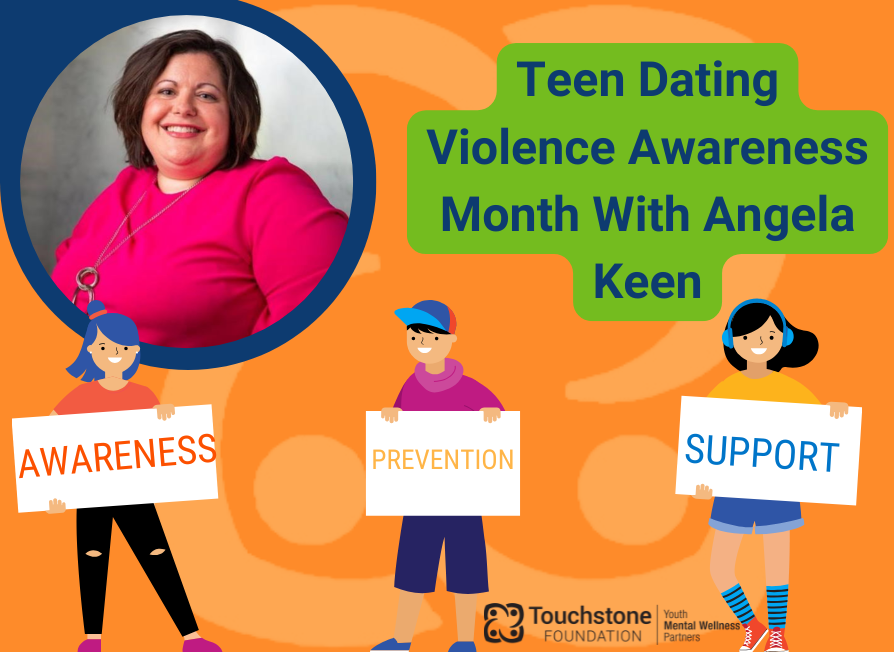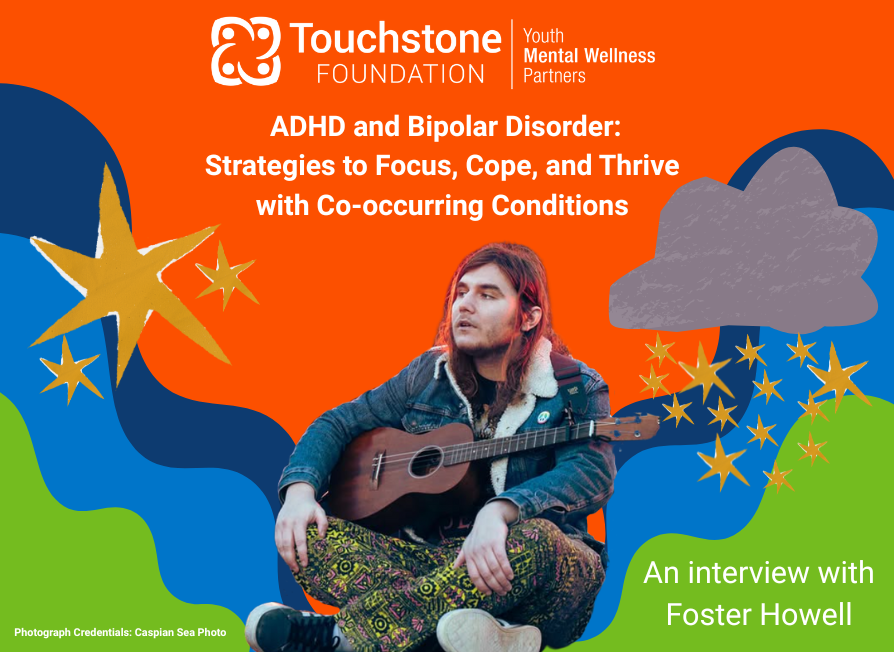
Breaking the Silence: Preventing Teen Dating Violence and Empowering Youth
February is Teen Dating Violence Awareness Month (TDVAM).
In a world where many shy away from uncomfortable truths, Angela Keen, a dedicated board member of Touchstone Foundation, stands as a fierce advocate for change—breaking barriers and giving a voice to the voiceless. As part of our Teen Dating Violence Awareness Month (TDVAM) spotlight, we have the privilege of sharing Angela’s perspective on a topic that too often remains hidden in the shadows.
Through her unwavering commitment, Angela is challenging the silence and empowering youth to recognize, prevent, and address unhealthy relationships. Join us as we dive into her insightful interview, where she opens up about the realities of teen dating violence and the transformative work being done to safeguard future generations.
Understanding the Crisis
Teen dating violence is a pressing public health issue that affects young people at alarming rates:
- 1 in 3 U.S. teens will experience physical, sexual, or emotional abuse from a partner before becoming adults (LoveIsRespect).
- Nearly half (43%) of U.S. college women report experiencing violent or abusive dating behaviors (LoveIsRespect).
- More than half of parents do not discuss dating abuse with their children (NIH, 2012).
- 58% of college students say they do not know how to help a friend in an abusive relationship (Women Helping Women).
Despite these statistics, many teens remain silent. This is a preventable crisis—one that starts with open conversations and education at all ages.
Why Awareness Matters
Teen dating violence does not begin with physical abuse. It often starts subtly—constant texting, tracking a partner’s whereabouts, or isolating them from friends. Over time, these behaviors can escalate into emotional, psychological, and even physical abuse.
Angela explains how this pattern develops:
“It doesn’t happen immediately or on the first date. In fact, it happens slowly over time, so that teens don’t recognize it as abuse. It may become a normal pattern of behavior in the relationship.”
This normalization makes it difficult for young people to recognize they are in an unhealthy relationship. If left unaddressed, the effects can impact self-esteem, mental health, and future relationships.
How We Can Prevent Teen Dating Violence
The key to prevention is education and communication at every age. Schools, families, and community organizations must work together to foster discussions on healthy relationships and boundaries.
“We have to have conversations with children about friendships and continue those conversations as they grow, including discussions about dating,” says Angela.
- Schools should integrate dating violence awareness into health class curricula.
- Parents must establish open, developmentally appropriate discussions about relationships.
- Community organizations can provide support, workshops, and advocacy.
These efforts help normalize conversations about friendships and dating, reducing stigma and encouraging young people to seek support when needed.
Support, Educate, Empower
For teens in unhealthy relationships, help is available. Angela highlights resources such as:
- Text LOVEIS to 22522 for immediate assistance
As a community, we must break the stigma around seeking help, stop blaming victims, and hold offenders accountable.
Schools can partner with advocacy groups to educate students, while parents and caregivers must be proactive in recognizing warning signs and offering support.
Together, We Can Prevent Teen Dating Violence
By fostering open conversations, educating young people, and offering support, we can create a culture where teens feel empowered to seek and maintain healthy relationships.
Let’s talk about it. Let’s end the silence.




